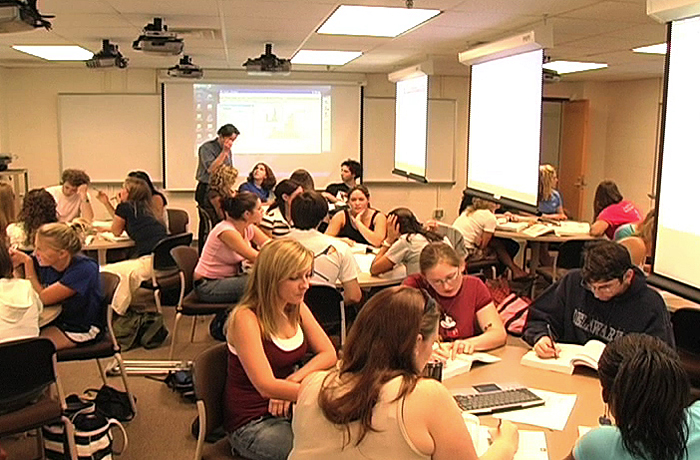
If I am continually vexed by any one question in education it is ‘
how can we enhance student motivation?‘
Of course, I do not have the answer, and if there is one it is
multi-faceted, complex and, frankly, not going to be solved in this blog
post! From my position as a classroom teacher, I am always on the look
out for those strategies that create a state when students are motivated
and in their
element, where they work furiously without even
realising they are doing so, without realising the clock is ticking down
to the end of the lesson. There is no better compliment than when
students question how long there is left and express genuine surprise at
how fast time has passed, and that they have actually enjoyed that
lesson!
My, admittedly non-scientific, observations are that many of the times students are in ‘
flow‘,
or their element, in my lessons is when they are collaborating in group
work. Why is this then? I believe that we are obviously social beings
and we naturally learn in such groups (not always effectively it must be
said), but that, more importantly, when working in a group we are able
to correct, support, encourage, question and develop ideas much more
effectively. The power of the group, guided by the expertise of the
teacher, accelerates learning, makes it richer and demands a learning
consensus that can push people beyond their habitual assumptions.

Don’t get me wrong, there are pitfalls and obstacles to group work.
This constructivist approach should build upon expert teacher led
pedagogy – ensuring that students have a good grounding in the relevant
knowledge before undertaking in-depth group work. Group work can also be
beset by issues in many nuanced forms: whether it is subtle
intellectual bullying, where the student who shouts loudest prevails; or
the encouragement of mediocrity and laziness, as students let others do
all the work; or simply by poor, distracting behaviour. Another issue
is ‘group think’ miscomprehension – indeed, how does prejudice flourish
if not in social groups?
Yet, this failure is often great for learning
as long as the teacher can illuminate the error of their ways. Of
course, no teaching strategy is foolproof and plain good teaching should
remedy many of the potential ills of group work, just as good teaching
can make more traditional teacher-led ‘direct instruction’ wholly
engaging and effective.

I am intrigued by the idea of ‘
social scaffolding‘
(Vygotsky) – the concept that most of our learning is undertaken in
group situations, where we learn through dialogue and debate with
others, not simply by listening to that voice in our head! That being
said, I am not talking teachers out of a classroom here. The role of the
teacher in devising and planning a successful group task takes skill,
rigour and utter clarity and precision. Students need to be clear about a
whole host of things: from their role, to the purpose of the task and
the parameters of expected outcomes to name but a few. Teachers need to
keep groups on track, intervene appropriately to improve learning and
regularly regain student focus. Teachers have a pivotal role in guiding
the group work at every stage. Group work certainly isn’t the lazy
option: it takes skill in the planning and the execution, and sometimes,
despite our best laid plans, it still fails. That shouldn’t put us off –
aren’t all teaching and learning strategies subject to such risks?
If I was to define a simple and straight-forward basis for the rules for group work it would be:
- Have clearly defined tasks, with sharp timings and with the appropriate tools organised
– Have clearly defined group roles
– Have clear ground rules for talk, listening and fair allocation of workload etc.
– Target your support and interventions throughout the task, but make them interdependent of one another, not dependent upon you
– Always be prepared to curtail group work if students don’t follow your high expectations.

